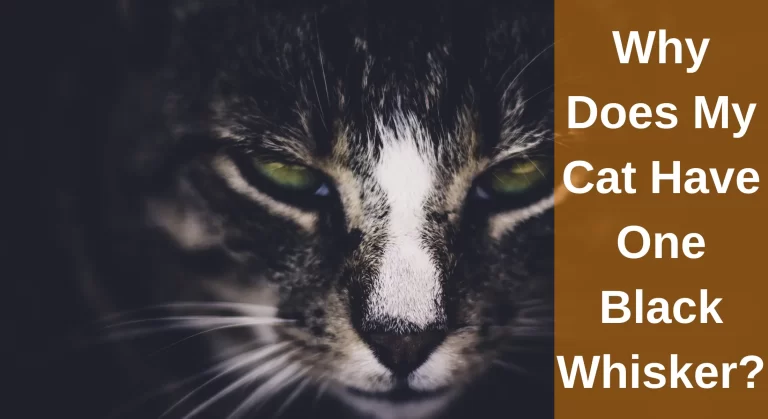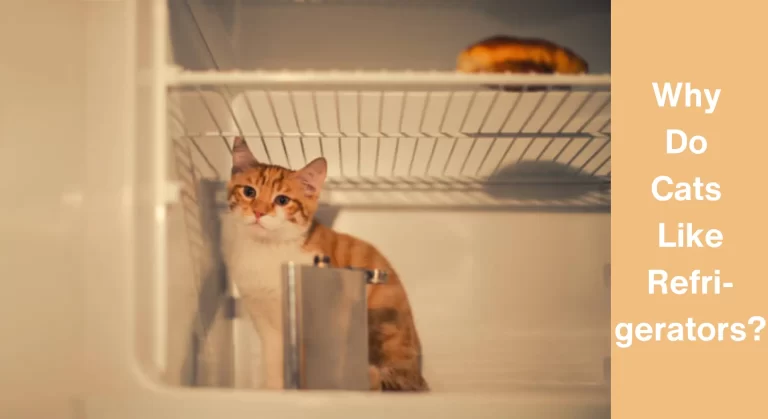Do Cats Understand Words? All You Need To Know
Cats are fantastic pets, but they can’t understand what humans are saying; this makes them less intellectual than dogs or other pets. However, cats may not obey your commands or focus while you’re saying something. But it doesn’t make any sense that they don’t comprehend what you’re trying to say. So, the most frequently asked question is Do Cats Understand Words? Do cats understand human language?
Cats can understand words, but in a different way than humans do. They learn to associate words with certain actions or events through repetition and pay attention to your tone of voice and body language. Most cats can learn to understand around 20-40 words and the ones that are most relevant to their daily lives, such as their name, and the words for food, treats, and toys.
To help you know if cats can understand human language or not, I’ve given a detailed review about cats’ way of understanding human language and how you can communicate with them. So, let’s read this post to know more about your cat’s understanding:

Can Cats Understand Humans? Do cats understand human language?
Cats can identify their names and even their owner’s voices. But they can’t understand what you’re saying to them. However, if you match your word with any situation, then the word may signal the situation and is understandable by your cat.
Moreover, cats can’t understand any specific language because they lack the mental vocalizations that humans have. Still, they can respond to human sounds and are adapted to them. Like dogs and other pets, they can recognize particular words and behaviors if it’s performed consistently.
Although cats can’t understand human words, they can understand human emotions far better than we’re conveying to them. Cats quickly recognize when we’re amused, scared, or irritated. Cats look at their owners’ faces to see their reactions to new or frightening scenarios, and they’ll alter their actions according to your mood.
Find Out: What Do Cats See When They Look at Humans?
How Do I Communicate with My Cat?
Warm vocalizations and body language, like smiling and talking in an enthusiastic voice tone, are the major factors that help you build a stronger relationship with your cat over time. Both these factors also help you understand how your cat communicates with you via their cat’s language.

Most people might be unaware of the cat’s language, so cats recognize human voices by moving their ears and heads instead of communicating via vocalization and tail motion. This behavior is known as orientation behavior.
Never use a harsh voice; always be cheerful and polite with your cat. You’ll notice that when you speak softly to your feline friends, they’ll respond to your particular sounds and words by perking up their ears.
Even though your cats learn to identify phrases like “food,” “good little boy,” and “no,”. Still, your way of talking is more crucial than your words. Like, your cat won’t understand “no” in the same voice as “good boy,”. So, adjust your accent according to your words and maintain consistency.
Interesting Reading: Why Are Cats So Stupid?
Your cat will be frightened if you use harsh language, a loud voice, or harsh overtones because these are connected with punishment. Moreover, if you use the hard tones repeatedly, your cat will be stressed out or even scared of you.
Although cats don’t understand what we are saying and they may not follow our instructions, still it’s very important to talk to your cat humbly and politely.
Do Cats Respond to Their Names?
Yes, cats do respond to their names. In fact, a 2019 study published in the journal Scientific Reports found that cats can recognize their own names and respond to them more than they do to other words.

However, it is important to note that cats may not always respond to their names when called. This is because cats are independent creatures and they may not always feel like coming when they are called. Additionally, cats may also be distracted by other things, such as food or toys, when they are called.
If you want to teach your cat to respond to their name, it is important to be consistent and to use their name in a positive context.
For example, you can call your cat’s name when you are feeding them, playing with them, or giving them treats. You can also use their name when you are talking to them in a loving and affectionate way.
Over time, your cat will learn to associate their name with positive things. This will make them more likely to respond when you call their name.
Some cats may respond by perking up their ears, moving in your direction, or even meowing in acknowledgment when they hear their name.
Also Read: How To Read Cat Body Language?
How Many Words Do Cats Understand?
Although cats don’t have the intellectual ability to understand human speech, they understand human language just like we do when we hear them meow.
Cats can understand 20 to 40 human words on average; however, some of them may understand as many as 50. But, instead of saying that cats can understand human words, it’ll be more accurate to say that they can identify and differentiate between words.
When we say feeding, cuddling, or playfulness words, our cats correlate them with mood, response, and gestures. That’s why our cats mostly react to those terms that we frequently say to them.
Also Study: Why Do Cats Meow Back At You When You Talk to Them?
What are the 16 Known Cat Words?
Although dogs can understand human language much better than cats, cats can still comprehend language. Moreover, cats understand humans’ voices and other characteristics to recognize words. Also, they can distinguish specific words in a wide range of situations and tones of voice.

But, for most people, it might be difficult to know what words cats understand more. So, here I’m going to enlist 16 known cat words that may help you to communicate more perfectly with your feline friends:
Murmur Sounds
Cats answer to the following words when they produce a murmuring sound:
- For purring/cuddling
- When they request or greet
- Calling their names
- When cats acknowledge or confirm something
Vowel Patterns
- When cats demand/beg
- When they’re in confusion
- When they don’t like something
Emotions
Cats understand human emotions by watching out for their facial expressions. The following emotional words are understandable by cats:
- Happy
- Excited
- Sad/Tensed/Anger
Commands
Cats also know command words such as:
- Come/Go away
- No
Treats
Cats quickly respond to words like:
- Munchies
- Dinnertime/Canned food
- Kibbles
Appreciation Words
- Good boy/Good girl
So, no matter whether cats lack intellectual abilities, they still understand humans well. Also, they’ll tell you with their vocalization when they feel unpleasant, joyful, confused, or hungry.
Do Cats Know Their Names?
It has been discovered that cats can differentiate between their owner and an unknown person by their voice. Moreover, cats react more passionately to their names than random words.

A study has shown that when neutral words are played in front of cats, they don’t respond to them. But, when they hear their names, they show oriented behavior with their head and ear movements. Even if a stranger calls out their names, they also respond to his voice.
Thus, it proves that cats recognize their names quickly and respond to them because, in return, they’ll get positive responses like food or playtime. That’s why cats overlook neutral terms, as they don’t bring any rewards or penalties for them.
However, it doesn’t mean that cat knows the concept of calling their names, and they won’t always come to you when you call them.
Also, Check Out: What Do Cats Think About All Day?
How to Teach Your Cat His Name?
Being autonomous creatures, cats might be trickier to teach than dogs. But as cats are also quite smart, they can easily learn their names if you treat them with the correct motivation. Here are some tips that will help you teach your cat his name:

- Always relate your cat’s name with some treat or favorite food.
- Pick the right time for teaching them, such as when they’re eating, playing, or cuddling you.
- Pick a small name for your cat and avoid any nickname, as it may confuse your cat.
- Call your cat’s name only when you want to feed them or play with them.
- Avoid calling your cat’s name when you’ve to give her medicine or put her into a pet carrier.
Do Cats Like Being Talked To?
Chatting with your cat is an excellent approach to strengthening your relationship with him because most cats prefer conversations with their owners or loved ones. Cats are extremely friendly creatures, and they value communication with humans more than other animals.
So, if you speak to your cat in a soothing, low voice, they’ll be more receptive and willing to communicate with you.

Thus, it’s suggested that when you’re speaking to your cats, your voice’s intensity and inflection must be low. Depending on your voice volume and the nature of your tone, cats may consider you either a danger or a protector.
Here are some tips that help you recognize whether your cat is hearing you or not:
- When your cat’s ears are toward you, they’re listening to you attentively.
- Blinking their eyes slowly while glancing at you, they’re watching your facial expressions while you’re talking to them to understand what you’re saying.
- When they exhibit any signs of seeking your attention, such as purring or showing up their belly toward your face.
All these positive indications show that your cat enjoys hearing from you. But, if you see that your cat’s ear isn’t towards you or if she’s focusing here and there while you’re talking, then they aren’t even giving a damn about your conversation.
Frequently Asked Question
Do cats understand human meows?
Your cat generally doesn’t recognize your meows, though they may hold a certain significance to you. The only thing that your cat understands when you’re meowing is that you’re trying to interact with them or observing them. But sometimes, when you meow back to your cat, it may confuse her about what you’re trying to imitate.
It’s important that you have to be attentive regarding your cat’s behavior when you meow at them. If they look perplexed or thankful, then you can meow back. But if your cats feel irritated or worried, you must refrain from meowing.
Do cats understand kisses?
When you bump your nose with your cat’s nose and kiss her, it shows a positive sign. Cats understand when you kiss them, they consider it a sign of affection. In some cases, they also kiss you back to show their love towards you.
Do cats understand the word no?
Cats may have some recognition of the word “no,” but their understanding is not as consistent as it is with dogs. They tend to respond more to the tone of your voice and your body language when using the word “no.” It’s essential to combine “no” with a clear gesture or action to help your cat associate the word with the specific behavior you want to discourage
How do I say sorry to my cat?
To say sorry to your cat, you should:
Use a calm and soothing tone of voice. Cats are sensitive to tone of voice, so avoid using a loud or angry voice.
Pet your cat in their favorite spots. This will help to reassure them and show them that you are not a threat.
Offer your cat a treat. This is another way to show them that you are sorry and that you care about them.
Say “I’m sorry” in a soft and gentle voice. Cats may not understand the words themselves, but they will understand your tone of voice.
Give your cat space. If they are not ready to forgive you right away, give them some time to cool down.
Conclusion
In the end, cats simply don’t understand a word that you say. So, if you think your cat understands what you’re saying, you’re wrong. On the other hand, cats can distinguish between their owner’s and unknown persons’ voices. Moreover, they can even understand their names, whether it called by their owners or a stranger.
But they don’t comprehend their name as a personal label. Yet they know when somebody calls out their names, they’ll be rewarded with a treat or food, or something is going to happen to them. It’s important to strengthen your bond with your felines fellow so that they’ll be able to understand your emotions, commands, and whatever you’re saying in a better way.
Related Posts:
Who is Isabella?
My name is Isabella, and I am a dedicated and knowledgeable cat enthusiast. With years of experience caring for cats and a deep love for felines, I made a mission to help other cat lovers navigate the challenges of cat ownership.






